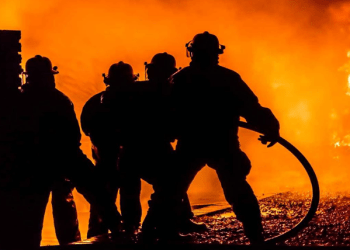The journey from military service to university life represents one of the most significant transitions a person can make. After years of structured military environments, the academic world can feel like uncharted territory. However, with the right mindset and resources, this transition can become a transformative experience that builds upon your military foundation while opening doors to new opportunities.
Understanding the Cultural Shift
Military culture and university culture operate on fundamentally different principles. In the military, hierarchy is clear, orders are direct, and mission objectives are precisely defined. Universities, by contrast, emphasize independent thinking, open debate, and self-directed learning. This shift from external structure to internal motivation can be jarring initially.
The age gap between you and traditional students may also feel significant. While your classmates are navigating their first taste of independence, you’re bringing years of real-world experience and responsibility. Rather than viewing this as a disadvantage, recognize it as a unique strength that brings valuable perspective to classroom discussions and group projects.
Leveraging Your Military Experience
Your military background has equipped you with invaluable skills that translate directly to academic success. Time management, discipline, and the ability to work under pressure are assets that many traditional students are still developing. Your experience with diverse teams and high-stakes situations provides a maturity and focus that can set you apart academically.
Leadership experience gained through military service often translates well to group projects and student organizations. Many veterans find themselves naturally taking on leadership roles in academic settings, helping to guide study groups and collaborative efforts with the same decisiveness they demonstrated in service.
Adjusting to Academic Life
The transition to academic thinking requires patience with yourself as you adapt to new learning styles. Military training emphasizes practical application and immediate results, while academic learning often involves theoretical concepts and long-term projects. Embrace this different pace and allow yourself time to develop comfort with abstract thinking and extended deadlines.
Effective study habits may need refinement for the academic environment. The memorization techniques that served you well in military training can be expanded to include critical analysis, research skills, and academic writing. Don’t hesitate to take advantage of study skills workshops and tutoring services designed to help students excel in these areas.
Building Your Support Network
Creating connections on campus is crucial for both academic success and personal well-being. While it may feel natural to gravitate toward other veterans, also make an effort to connect with traditional students, faculty members, and staff. These relationships can provide different perspectives and opportunities that enrich your university experience.
Consider joining student organizations that align with your interests and career goals. Professional associations, academic clubs, and volunteer organizations can help you build networks that extend beyond graduation while providing leadership opportunities that utilize your military experience.
Utilizing Campus Resources for Veterans
Most universities like University of Maryland Global Campus, recognize the unique needs of veteran students and have developed comprehensive support systems. Veterans affairs offices typically serve as central hubs for information about benefits, academic support, and social connections. These offices often coordinate with other campus departments to ensure veterans receive appropriate accommodations and support.
Academic support services frequently include tutoring programs, writing centers, and study skills workshops specifically designed for non-traditional students. Many institutions also offer priority registration for veterans, recognizing that your benefits may have time constraints that require careful academic planning.
Counseling and mental health services understand the unique challenges of military-to-civilian transition. These professionals can help you navigate adjustment difficulties, manage stress, and develop coping strategies for the academic environment. Many campuses also offer peer support groups where veterans can share experiences and strategies with others facing similar challenges.
Financial Planning and Benefits Management
Understanding and maximizing your educational benefits requires careful planning and attention to deadlines. Campus veterans’ services offices can help you navigate the complexities of benefit administration and ensure you’re making the most of available resources. They can also connect you with emergency financial assistance programs if unexpected situations arise.
Work-study opportunities and internships can provide both financial support and valuable professional experience. Many programs specifically seek veterans for positions that can utilize your leadership skills and work ethic while providing flexibility around your academic schedule.
Moving Forward with Confidence
The transition from military to university life is a significant undertaking, but your military experience has prepared you with resilience, adaptability, and determination. Embrace the challenges as opportunities for growth, utilize available resources, and remember that this transition is a process that takes time. Your unique perspective and experience make you a valuable addition to any academic community, and with patience and persistence, you can achieve the same level of success in academia that you demonstrated in military service.








